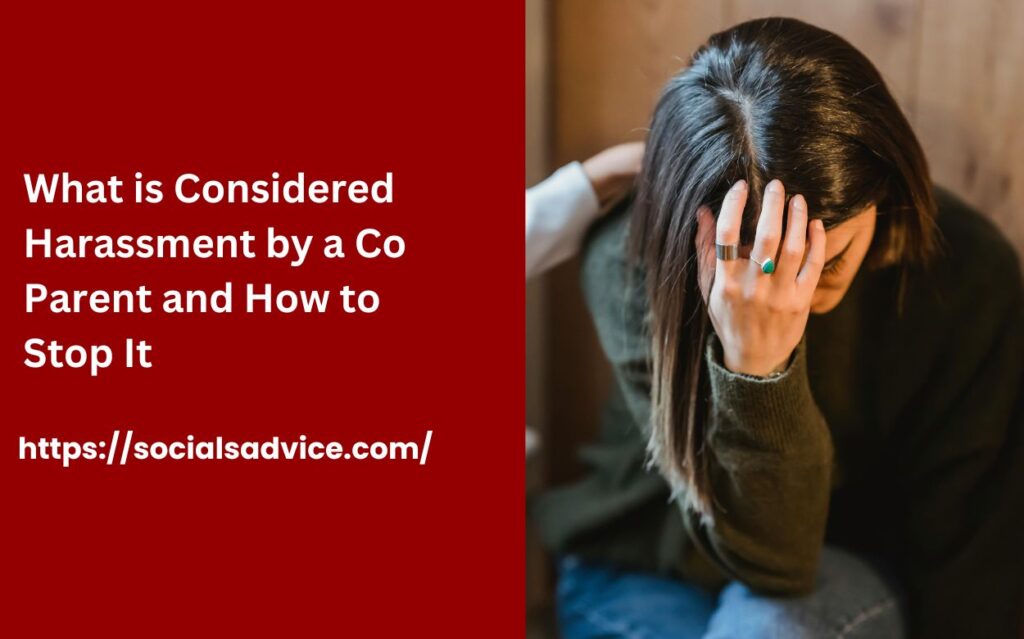
Harassment is the traumatic experience that can destroy and damage one’s peace of mind, physical and emotional well-being. It’s important to get help and understand your rights if you don’t know what to do when someone won’t stop harassing you.
It’s important to take action against such acts to protect yourself. You must talk to the harasser to let them know that their behavior is not acceptable. If someone does not stop harassing you, you must report it to the appropriate authorities.
If the harasser continues to put you down, make inappropriate comments, and refuses to leave you alone, be sure to get a restraining order against him.
What Different Forms of Harassment Are There?
Harassment is repeated behavior that offends and threatens the victim, often resulting in a hostile environment. Harassment is unwanted and unwanted behavior that comes in various forms, such as,
- Verbal harassment
- Cyberbullying
- Physical harassment
- Sexual harassment
- To stalk
- Threats of violence
Harassment is considered a violation of your rights and can have serious consequences for the harasser. It is important to recognize the symptoms and report them to the authorities.
How to Strategies for Addressing Persistent Harassmen
When someone doesn’t stop harassing you, you don’t know what to do. In that case, you can take the legal action. For example, you can sue him because harassment is a crime, and the perpetrator can face jail time.
Intent is necessary for a charge of harassment, meaning the harasser must intend to threaten or intimidate you. You need to justify the behavior if they continue the behavior after you advise them to stop.
Document the Harassment
Make sure you keep a record of the incident as it is very important in filing a case against the attacker. You can write the date, time and place of each incident. You can also keep records of witnesses or evidence such as photos and messages, because it will help you to file a case.
Report the Incidents of Harassment
If someone does not stop harassing you at your workplace or in any other institution, then you should immediately report the incident to the concerned authorities of the institution. They have policies and procedures to deal with such unwanted situations and can take action against the harasser.
Enhance Your Privacy
You also need to take serious steps to protect your online privacy and ensure that social media sites are not transparent. Some websites display information about you, such as an email address, home address, phone number, or work address that a harasser can use to find you.
Reach Out to Law Enforcement
You can still contact the police if a harasser commits a crime. Whether threatening or stalking you, the police will investigate and prosecute the harasser, but it’s important to remember that you must provide solid evidence and documents to support your case.
Consult an Lawyer
You can also consult with an attorney who specializes in handling harassment cases. They guide you about your legal options and rights, for example, filing for a restraining order or getting a lawsuit.
Legal Protection Order
The restraining order protects you from future harassment and tells you when someone will stop harassing you to keep a certain distance or avoid contact.
How to Request a Protective Order
It is important to get a restraining order to protect yourself and your sanity from the harasser. First, you should file a petition for the restraining order, serve it on the harasser, and attend a court hearing where the judge decides if someone will stop harassing you. If so, will protective and restraining orders be provided?
You will have a paper restraining order, which you should keep with you if the harasser breaks the order.
- A restraining order states that the harasser is prohibited from contacting you or coming within certain limits.
- Keep a journal that contains a detailed record or report of each time the harasser violates the restraining order.
- If you feel you are in danger, you can get a temporary restraining order. This legally prevents the harasser from approaching you at least until the court date.
Addressing Unwanted Calls, Texts, and Messages
Harassment through text messages, phone calls, and other communication platforms is the very common form of abuse. There are different ways to deal with this type of harassment, and it depends on what you want to do. Most survivors of domestic and family violence simply want the harassment to stop, while other survivors want the person charged and prosecuted. Some survivors want to increase the security and privacy of their technology to prevent or minimize contact with the abusive person. This handout will discuss the various options you can pursue.
Legal Remedies
Depending on the manner and extent of the harassment, legal remedies may be available. Legal options can be civil (such as an order of protection). Other legal remedies can be criminal, such as an investigation by the police that can result in criminal charges and prosecution of the abuser. You will need to speak to the police or get legal advice if you want to find out.
Conclusion
If someone doesn’t stop harassing you, be sure to take control of the situation to protect yourself by understanding your rights, getting help, setting boundaries, documenting incidents and reporting incidents. Harassment is an overwhelming and unwanted experience that disrupts daily routines and peace.
Building awareness, focusing on self-care, and developing resilience are important to help you heal from a traumatic experience. There are resources available to help you through it difficult circumstances.
FAQ’s
What to do when someone doesn’t stop harassing you
You need to set clear boundaries, documents of the incidents, reach out to the appropriate authorities, and report harassment to prevent future incidents.
How to protect myself from online harassment?
You should increase your online privacy and block the harasser on all social media platforms. By using privacy settings and a growing number of monitoring tools, you can protect your online existence.
How to confront the harasser directly?
It is important to tell the harasser about your pain and encourage him to change his behavior. In other ways, you can report the incident and get help from the authorities.
What are the actions against harassment?
Some possible defenses to harassment charges include: Defendant was acting under an influence of extreme emotional pain. A defendant had reasonable cause to believe that his actions were required to protect himself or the other person. Defendant acted in self-defense.


